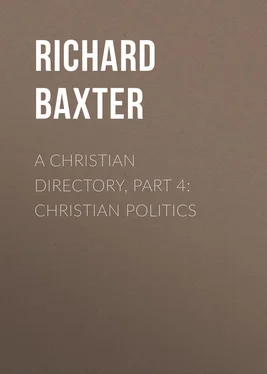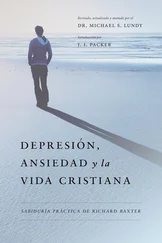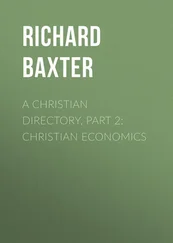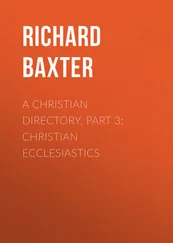See Bilson of Subject, p. 525, 526. Proving from Chrysostom, Hilary, Origen, that pastors may use no force or terror, but only persuasion, to recover their wandering sheep. Bilson, ibid. p. 541. Parliaments have been kept by the king and his barons, the clergy wholly excluded, and yet their acts and statutes good: and when the bishops were present, their voices from the Conquest to this day were never negative. By God's law you have nothing to do with making laws for kingdoms and commonwealths: you may teach, you may not command: persuasion is your part, compulsion is the prince's, &c. Thus Bishop Bilson. So p. 358.
1 Pet. ii. 16; Gal. v. 13; 2 Pet. ii. 19; Gal. iv. 26; 2 Cor. iii. 17.
Having spoken of this controversy, in my "Life of Faith," as an easy thing, in which I thought we were really agreed, while we seemed to differ, which I called a pitiful case, some brethren (who say nothing against the truth of what I said) are offended at me as speaking too confidently, and calling that so easy which Bishop Sanderson and so many others did make a greater matter of; I retract the words, if they be unsuitable either to the matter or the readers: but as to the matter and the truth of the words, I desire the reader but to consider how easy a case Mr. P. maketh of it, Eccl. Pol. and how heinous a matter he maketh of our supposed dissent: and if after all this it shall appear, that the nonconformists do not at all differ from Hooker, Bilson, and the generality of the conformists in this point, let him that is willing to be represented as odious and intolerable to rulers and to mankind, for that in which we do not differ, proceed to backbite me for saying that it is a pitiful case; and pretending that we are agreed.
It is not Mr. Humphrey alone that hath written that laws bind not in conscience to obedience which are against the public good. The greatest casuists say the same, excepting the case of scandal: he that would see this in them may choose but these two special authors, Bapt. Fragos. de Regimine Reipublicæ, and Greg. Sayrus in his Clavis Regia, and in them he shall find enough more cited. Though I think some further cautions would make it more satisfactory.
Legum mihi placet autoritas; sed earum usus hominum nequitia depravatur: itaque piguit perdiscere, quo inhoneste uti nollem, et honeste vix possem, etsi vellem. Petrarch. in vita sua.
Male se rectum putat, qui regulam summæ rectitudinis ignorat. Ambros. de Offic.
It was an ill time when Petr. Bless. said, "Officium officialium est hodie jura confundere, lites suscitare, transactiones rescindere, dilationes innectere, supprimere veritatem, fovere mendacium, quæstum sequi, æquitatem vendere, inhiare actionibus, versutias concinnare."
Bias fertur in causis orandis summus atque vehementissimus fuisse, bonam tamen in partem dicendi vim exercere solitum. Laert. p. 53. Justum est homines justitiam diligere; non autem justitiam propter homines postponere. Gregor. Reg. Justitia non novit patrem, vel matrem; veritatem novit; personam non novit; Deum imitatur. – Cassian. Plutarch saith, that Callicratidas being offered a great sum of money (of which he had great need to pay his seamen) if he would do an unjust act, refused: to whom saith Cleander his counsellor, "Ego profecto hæc accepissem, si fuissem Callicratidas." He answered, "Ego accepissem, si fuissem Cleander."
Facile est justitiam homini justissimo.
Vix potest negligere, qui novit æquitatem: nec facile erroris vitio fordescit, quem doctrina purgaverit. Cassiodor.
Chilon in Laert. p. 43. (mihi) saith, Sibi non esse conscium in tota vita ingratitudinis: una tamen re se modice moveri, quod cum semel inter amicos illi judicandum esset, neque contra jus agere aliquid vellet, persuaserit amico judicium a se provocaret, ut si nimirum utrumque et legem et amicum servaret. This was his injustice of which he repented.
As overvaluing men's own understandings in religion, is the ruin of souls and churches; so overvaluing men's raw, unexperienced apprehensions in physic costeth multitudes their lives. I know not whether a few able, judicious, experienced physicians cure more or the rest kill more.
Many of the greatest divines have given God great thanks for their schoolmasters, and left their names on record with honour, as Calvin did by Corderius, Beza by Melchior Volmarius, &c.
Neander in Chron. p. 104.
And though I ignore not that it is a much more fashionable and celebrated practice in young gentlemen to kill men, than to cure them; and that mistaken mortals think it to be the noblest exercise of virtue, to destroy the noblest workmanship of nature, (and indeed in some few cases, the requisiteness and danger of destructive valour, may make its actions become a virtuous patriot,) yet when I consider the character given of our great Master and Exemplar, that he went about doing good, and healing all manner of sicknesses – I cannot but think such an employment worthy of the very noblest of his disciples. Mr. Boyle's Experiment. Philos. p. 303, 304.












